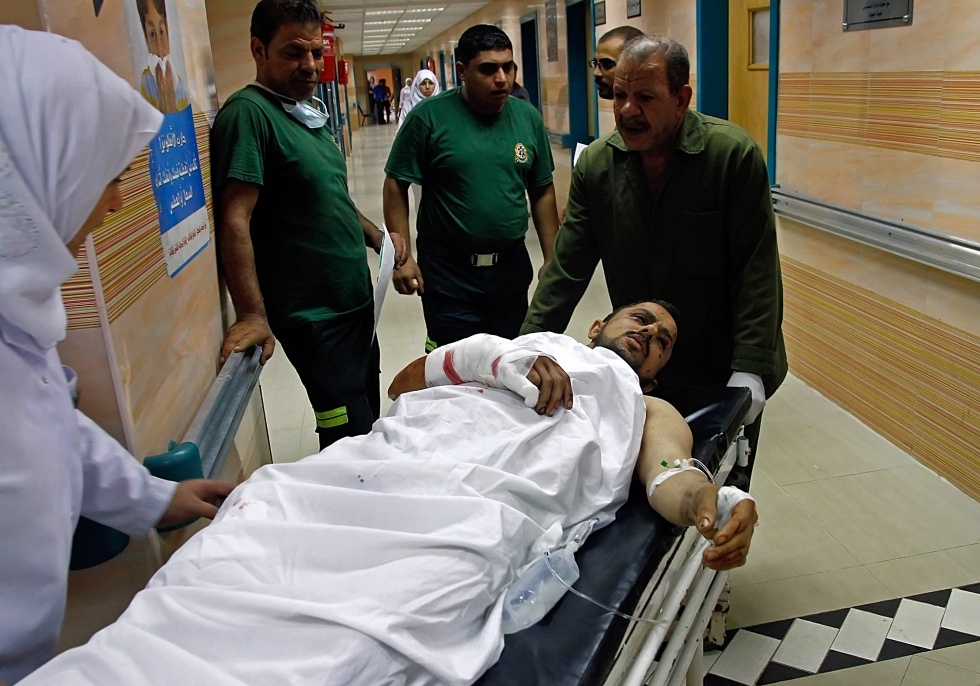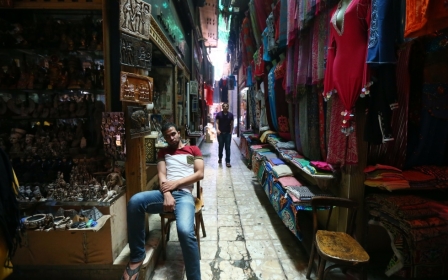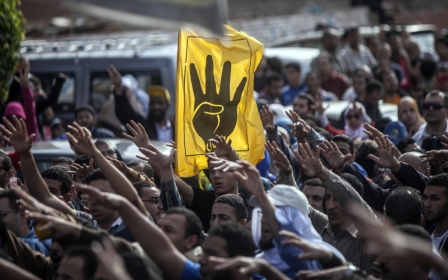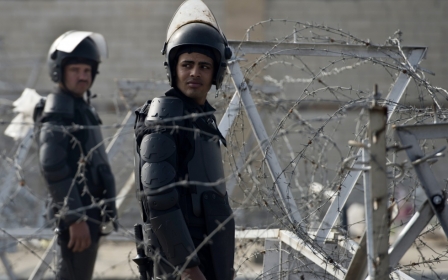Further blasts hit Cairo as stock market falls

After four bomb blasts hit Cairo on Wednesday morning, two further explosions rocked the capital early on Wednesday afternoon, bringing the number of injured to six in less than half a day.
The two additional bombs went off in the Ezbet al-Nakhl metro station in north-east Cairo, and near a courthouse in the relatively wealthy district of Heliopolis.
The explosions follow on from four similar blasts that went off in the Ghamra and Shubra al-Kheima stations in central Cairo and the Kobry al-Qubba in the north east of the city.
Security sources told the state-aligned daily al-Ahram that the devices were homemade and were hidden in bins on station platforms.
The bomb that went off near the courthouse reportedly exploded in a nearby vehicle.
A security source told TV station EgyNews that a Molotov cocktail was also found in the area and was diffused.
The explosive devices were "very primary" and of "low intensity," a security official told AFP.
Inteher bomb was discovered and diffused in Helmeyet al-Zeitoun station on Wednesday morning, EgyNews reported.
The blasts come just a week before the anniversary of Morsi’s overthrow, which took place on 3 July last year and has left Egypt deeply divided.
Economic turbulence
News of the blasts further rattled Egypt’s stock market, which saw its benchmark index fall by 1.6 percent on Wednesday.
The index has suffered large losses in recent weeks amid uncertainty about the country’s security and its ability to jumpstart a stagnating economy, which has been hard hit by years of turbulence in the aftermath of the 2011 Revolution.
Investors are also worried that former field marshal and now President Abdel Fatah al-Sisi may soon announce a raft of tax hikes and government spending cuts to try to curtail Egypt’s worsening budget crisis.
“Sisi’s stance has raised investor fears that the government will have to resort to tax hikes and drastic fuel subsidy cuts,” an analyst at a Cairo-based investment house told Ahram Online.
In the weeks following his controversial election late last month, the new president has shied away from ratifying the budget, with fears that any reductions in generous fuel or food subsidies could spark further unrest.
In a speech on Tuesday, the president announced that he was rejecting the current draft of a state budget for 2014/2015, which would have increased Egypt's budget deficit.
Since former President Mohamed Morsi's ouster, a crackdown on his supporters has left more than 1,400 people dead and seen at least 16,000 jailed.
Hundreds have also been sentenced to death in speedy mass trials that have sparked international outcry.
Much of the violence that has hit Egypt in recent months has been focused in the north of the mainly desert Sinai Peninsula, but militants have extended their reach to Cairo and the Nile Delta, carrying out a series of high-profile assaults in the capital. rior Ministry spokesperson Hani Abdel Latif said that one of the perpetrators was amongst the injured.
New MEE newsletter: Jerusalem Dispatch
Sign up to get the latest insights and analysis on Israel-Palestine, alongside Turkey Unpacked and other MEE newsletters
Middle East Eye delivers independent and unrivalled coverage and analysis of the Middle East, North Africa and beyond. To learn more about republishing this content and the associated fees, please fill out this form. More about MEE can be found here.




